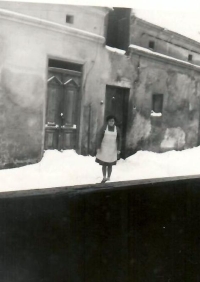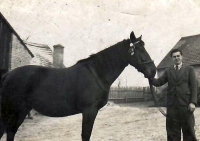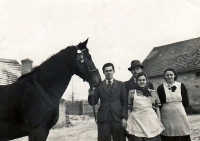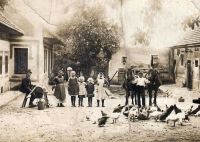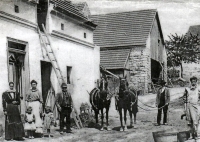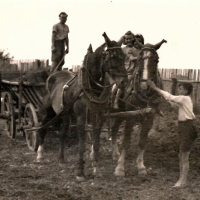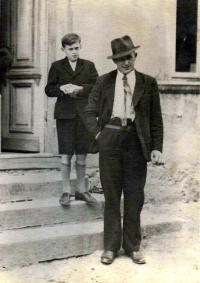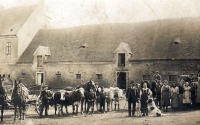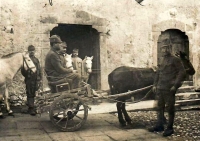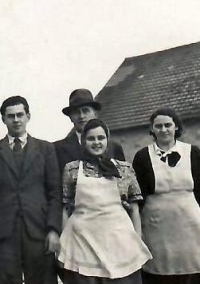No one will help a kulak, you are moving in the morning

Download image
Miloslava Zímová, née Herclová was born on 2 January 1933 in the village of Lhota near Kladno, at the edge of Křivoklát forests. Her family lived off a farm which was one of the three biggest in the village. Miloslava´s father Jan Hercl was a local authority, patriot, member of the Sokol movement, and a farmer. It is highly probable that he cooperated with anti-Nazi resistance during the war, supported partisans and he hid fugitive Soviet captives at his farm at the end of the war. Miloslava Zímová remembers that Russian soldiers shortly stayed in Lhota at the beginning of May 1945 and that their officers, generals Vlasov and Bunyachenko spent there a night as well. The Red army soldiers arrived in the village shortly after their departure. Mutual solidarity and quite harmonious relationships between the villagers started to change shortly after the end of the war when communists won the local election. However, a dramatic change occurred in the early 1950s at the time of collectivization. Jan Hercl declined to join the newly established agricultural cooperative and that is why his family faced permanent pressure from the management of the cooperative and also from the Local National Committee. They managed to resist it for some time, but they were pejoratively called ‘kulaks’ and gradually became unwanted members of the village community. In 1952, a forced administration was imposed on their property and shortly afterward they were evicted from the village. They got replacement accommodation in unsuitable conditions in Přílepy near Prague which was more than thirty kilometres away and they got forced work in a brickyard in Libčice nad Vltavou. Miloslava was not allowed to finish the School of Agriculture, her brother spent three years of his military service in mines as a member of Technical auxiliary battalions. For seventeen years they were not allowed to visit the village and the district where their ancestors had farmed for hundreds of years. They returned home in 1968 when they got back part of their confiscated property. However, they did not start to farm again. Miloslava Zímová currently (2022) lives in a nursing home in Lhota.
